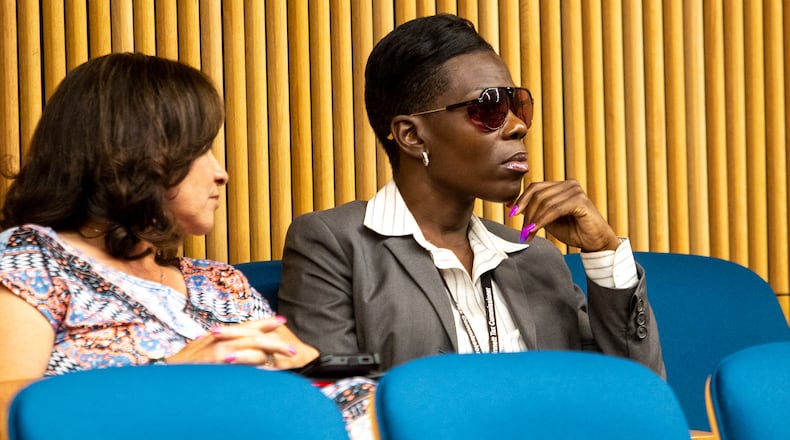A Superior Court judge ruled Friday that Gwinnett County Tax Commissioner Tiffany Porter must collect property taxes on behalf of Grayson without an additional fee.
A state law enacted earlier this year to prevent some tax commissioners from charging cities a personal fee to issue tax bills is constitutional, according to a ruling by Judge Laura Tate. In her decision, Tate wrote that Porter will have to honor a tax-collection agreement made between Gwinnett County and Grayson, which requires her to handle property tax collections for the city without additional compensation.
“I believe in the judge’s ruling,” Grayson Mayor Allison Wilkerson told The Atlanta Journal-Constitution. “I look forward to working with Commissioner Porter and her staff in getting the City of Grayson’s tax bills out.”
Porter declined to provide a statement to the AJC and directed the newspaper to her representation, former Georgia Supreme Court Chief Justice Leah Ward Sears. In an emailed statement to the AJC, Sears said Porter intends to appeal the decision and seek to halt the order to collect Grayson’s taxes until an appeals court makes a final decision.
Gov. Brian Kemp signed Senate Bill 201 into law earlier this year. The law stops tax commissioners in select counties from negotiating tax contracts with cities to increase their own pay and instead gives responsibility for negotiations to county commissions.
The state law currently only affects Fulton and Gwinnett because it only applies to counties with more than 50,000 tax parcels or 14 or more cities within them. Other tax commissioners in Georgia also raise their salaries by charging cities per-parcel fees for municipal tax collection.
The state Legislature hastily wrote the bill after Porter announced plans to charge eight Gwinnett cities a new $2-per-parcel fee for tax collection that would have raised her $141,098 annual base salary by more than $110,000.
After the state law took effect, Grayson agreed in June to pay the county $1.80 per parcel for tax collection but not a personal fee to Porter. The city sued in July after Porter refused to collect on Grayson’s behalf. Porter’s office mailed out tax bills for the county and three cities in August, which become due in October.
“(Porter’s) labor and services have been sold by and between others, for those others to reap the benefits and collect the fruits of her labors, without her having had any say in the matter whatsoever,” Sears wrote in a counterclaim to the lawsuit.
Porter challenged the constitutionality of the law since it currently only affects two counties. Sears argued on Porter’s behalf that the state Legislature “denied (Porter) freedom of contract and attempted to change the method by which tax collectors and commissioners have been paid for over a century.”
Georgia Attorney General Chris Carr and his office filed briefs in support of the constitutionality of the law. He argued that tax commissioners in large counties already earn higher base salaries than tax commissioners in small counties, hence the distinction between counties with or without 14 or more cities within them.
Carr and Grayson City Attorney Lee Thompson argued that the law does not unconstitutionally target any particular tax commissioners. Tate agreed in her ruling.
“The language ‘a county which contains 14 or more municipalities’ is open to letting other counties fall into this class, should additional municipalities be incorporated into those other counties,” Tate wrote in her order. “Likewise, both Gwinnett and Fulton can fall outside of the class should the municipalities in these counties be dissolved.”
Grayson was the only city in Gwinnett County to test the new law with a city-county agreement without a personal fee. After Porter tried to institute the fee, the cities of Lawrenceville, Lilburn, Snellville and Sugar Hill decided to collect property taxes on their own. Dacula plans to collect on its own starting next year.
Dacula and Peachtree Corners will pay Porter $2 per parcel for her to collect for them. Berkeley Lake will pay $1 per parcel. All together, the fees will boost Porter’s salary by more than $34,000. The three cities will also pay the county $1.80 per parcel for collection.
“(Porter) only objects to the Agreement between Gwinnett County and the City of Grayson because it does not provide her any additional compensation for collecting taxes for the City of Grayson,” Judge Tate wrote. “While the Tax Commissioner may not like this decision, the Legislature has given Gwinnett County the right to make the decision regarding compensation.”
About the Author
The Latest
Featured



